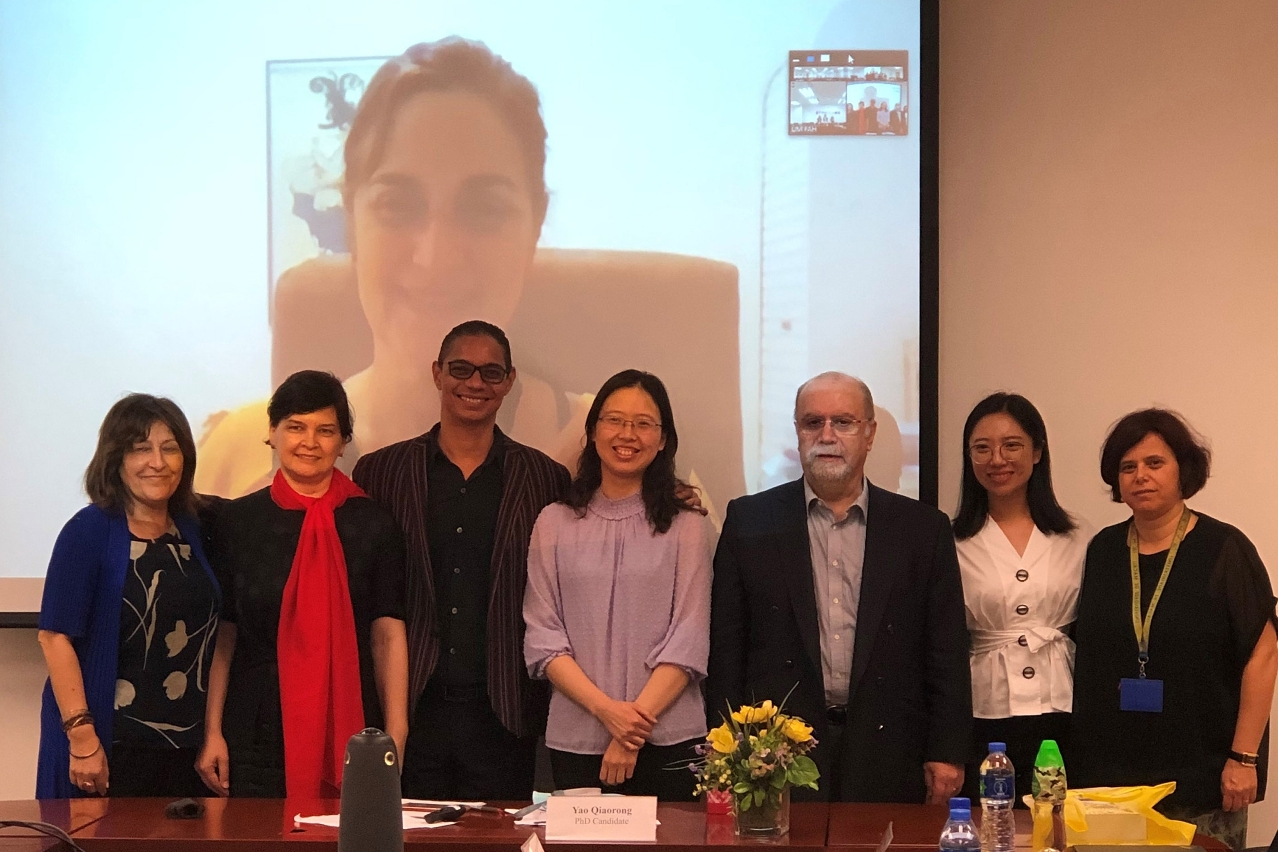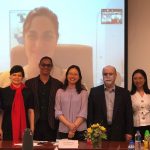 UM student Yan Qiaorong has completed the oral defense for her PhD thesis
UM student Yan Qiaorong has completed the oral defense for her PhD thesis
Yan Qiaorong, a PhD student in the Department of Portuguese, Faculty of Arts and Humanities, University of Macau (UM), recently completed the oral defense for her thesis titled ‘Repair as a Cooperative Strategy in Classroom Interaction’. The thesis discusses the stereotype of Chinese students as being passive learners in a Portuguese learning environment and analyses teacher-student interactions in class at universities, with the aim of enhancing learning outcomes. The thesis offers new insights for Portuguese teaching and learning.
Yan is an instructor and coordinator of Portuguese programmes at the Communication University of China, the first university to offer Portuguese language courses in mainland China. Yan’s study has found that both students and teachers adopt a high degree of discursive participation in order to solve problems (to use the ‘repair’) cooperatively and to guarantee mutual understanding. She argues that the so-called ‘passivity of Chinese students’ needs to be reviewed. She specifically points out that breaking this paradigm will create a significant change in the teaching of Portuguese language to Chinese students and in the training of teachers.
Using a combination of sophisticated contemporary concepts and theories in applied linguistics, such as superdiversity, multilingualism, and globalisation, Yan points out that languages or cultures cannot be viewed as pure or superior in relation to others, as old conceptualisations (still in effect today) used to claim. According to Yan, the construction of the social world, including its cultural values, patterns, prejudices, and stereotypes, takes place in the micro-interactions that are part of our daily life, including interactions in the classroom. Therefore, it is in these micro-interactions that negative social values, such as this Chinese stereotype, can be deconstructed. She argues that, unlike traditional concepts formed in the past few centuries, languages and cultures are (re)created and (re)invented in these micro-spaces.
This research study was coordinated by Assistant Professor Roberval Teixeira e Silva, as part of the project titled ‘Language, Culture and Interaction: Traits of the Portuguese Language Classroom in Macao and China’. As an institutional coordinator of the UNESCO (United Nations Educational Scientific and Cultural Organization) Chair of Language Policies for Multilingualism at UM, Silva is responsible for discussing policies for multilingualism, as well as encouraging Asian students and academic institutions to conduct studies in this area.


